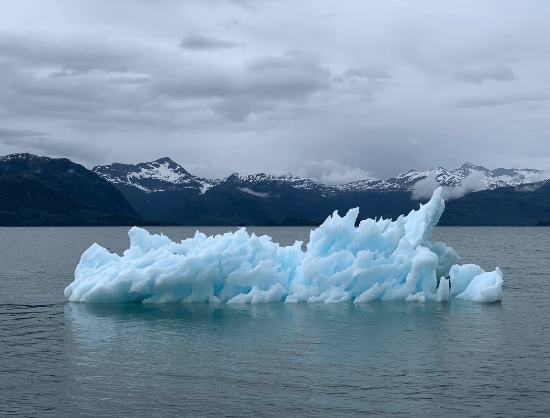Climate change is one of the most pressing issues facing our world today. It refers to a broad array of environmental degradation predicted to result from increasing levels of atmospheric CO2, including global warming, alterations in precipitation, sea-level changes, and more extreme weather events. While the term “climate change” is often used interchangeably with “global warming,” it is important to note that climate change encompasses a much wider range of environmental concerns. In this article, we’ll provide a comprehensive overview of what climate change is, how it’s caused and what its effects are anticipated to be.
What Is Climate Change?
Climate change refers to long-term shifts in temperature, precipitation, sea level, and other measures of the Earth’s climate. Natural processes and human activity can cause climate change. It is predicted to result in several serious environmental consequences, including global warming, alterations in precipitation, sea-level changes, and more extreme weather events.
While the Earth’s climate has undergone various changes over the millennia (including ice ages and periods of warm weather), the rate of climate change we are currently experiencing is unprecedented. Scientists believe that this rapid increase is largely due to human activity, such as burning fossil fuels, cutting down forests, and livestock farming. For more information, folks at https://www.trvst.world/climate-change/documentaries/ have highlighted some of the best climate change documentaries for you to watch. Understanding climate change, how it’s caused, and its potential effects is critical for developing effective strategies to mitigate its damaging consequences.
You may also consider listening to a climate change podcast to stay up-to-date on the latest news and developments. By hearing stories from experts and scientists on this topic or those directly affected by climate change, you can gain a better understanding of its impact.
How Is Climate Change Caused?
Climate change is caused by natural and anthropogenic factors (human-caused). Natural causes include changes in the Earth’s orbit and volcanic eruptions. Anthropogenic causes, on the other hand, are largely due to human activity, such as burning fossil fuels, cutting down forests, and livestock farming.
The most significant anthropogenic contributor to climate change is greenhouse gas emissions. Greenhouse gasses trap heat in the atmosphere, causing the Earth’s temperature to rise. The most common greenhouse gasses are water vapor, carbon dioxide, methane, nitrous oxide, and ozone.
Of these greenhouse gasses, carbon dioxide is the most abundant, accounting for roughly 82% of all anthropogenic greenhouse gas emissions. Burning fossil fuels like coal and oil releases carbon dioxide into the atmosphere, as do activities like deforestation and cement production. Once in the atmosphere, carbon dioxide can remain there for hundreds of years, meaning that the greenhouse gasses we emit today will have long-lasting effects on the Earth’s climate. To address the urgent need to combat climate change, organizations and governments around the world are increasingly focusing on decarbonization strategies. Moreover, effective carbon management plays a vital role in decarbonization efforts. It involves tracking, measuring, and reporting carbon emissions to identify hotspots and monitor progress.
What Are The Effects Of Climate Change?
Climate change results in several serious consequences, including global warming, alterations in precipitation, sea-level changes, and more extreme weather events.
Global warming is the gradual increase of the Earth’s average surface temperature. The rising levels of greenhouse gasses cause it in the atmosphere, which traps heat and causes the Earth’s temperature to rise. Global warming will likely cause several impacts, including melting glaciers, rising sea levels, and more frequent and intense extreme weather events.
Alterations in precipitation refer to changes in the amount, intensity, duration, and timing of precipitation. These changes are caused by several factors, including rising temperatures, alterations in atmospheric circulation patterns, and changes in evaporation and plant transpiration rates. Climate change results in more extreme weather events, such as frequent and intense storms, floods, and droughts.
Sea level rise refers to an increase in the average sea level due to melting ice sheets and glaciers and the expansion of seawater as it warms. It is estimated that sea levels could rise by as much as 1-2 meters. This would have devastating consequences for coastal communities worldwide and low-lying island nations.
More extreme weather events are another predicted effect of climate change. As the Earth’s atmosphere warms, the air can hold more moisture, resulting in more intense storms, floods, and droughts. Climate change is also expected to cause changes in atmospheric circulation patterns, leading to more frequent and severe heatwaves, wildfires, and hurricanes.
What Can Be Done To Mitigate Climate Change?
There are several things that individuals and governments can do to mitigate climate change and its effects. People can reduce their greenhouse gas emissions by driving less, recycling more, and using energy-efficient appliances individually. Governments can implement policies to encourage these behaviors and invest in renewable energy sources like solar and wind power.
Reducing greenhouse gas emissions is essential to mitigating climate change, but it is not the only thing that needs to be done. It is also important to adapt to the changing climate and its effects. This means preparing for and responding to extreme weather events, sea-level rise, and other impacts of climate change.
Climate change is a complex problem that can seem daunting to tackle. However, understanding the basics of climate change is a good first step in taking action to mitigate its effects. By reducing greenhouse gas emissions, preparing for extreme weather events, and promoting adaptation, we can make a difference in fighting global climate change.


